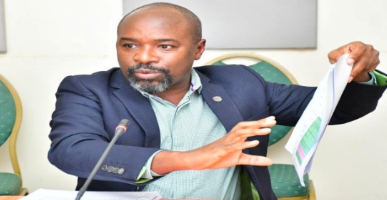The High Court’s Commercial Division has directed the Ugandan government to restore land titles to OpecPrime Properties Limited and awarded the company Shs1 billion in damages following a breach of a settlement agreement tied to the Nakawa-Naguru Satellite City project.
In a ruling issued on January 20, 2025, Justice Harriet Grace Magala found that the government had violated the 2021 agreement by failing to return property titles for 15.629 acres of land to OpecPrime. The court also criticized the reallocation of the contested land to third parties without adhering to the terms of the agreement.
“The Defendant’s failure to fulfill its obligations under the Settlement Agreement amounts to a clear breach of contract,” Justice Magala stated.
The court ordered the immediate reinstatement of the titles to OpecPrime and imposed a permanent injunction against further interference with the land. It also awarded Shs800 million in general damages for financial losses suffered by OpecPrime due to the government’s non-compliance. An additional Shs200 million in punitive damages was granted to underscore the gravity of the breach.
Justice Magala emphasized the broader implications of the government’s conduct, noting that such breaches harm public-private partnerships and undermine investor confidence. “This case underscores the importance of respecting agreements, especially in partnerships designed to drive national development,” she remarked.
The dispute stems from a 2007 public-private partnership between OpecPrime and the government aimed at transforming the Nakawa-Naguru area into a modern satellite city. However, disagreements over land ownership and management led to protracted legal battles, including a 2018 case where OpecPrime sought to block evictions and disruptions to its land.
A 2021 settlement agreement sought to resolve the issues by granting OpecPrime land titles, but the government failed to comply. During a site visit by the court in May 2024, evidence revealed that parts of the land had been allocated to other entities, including Roko Construction Ltd and Karim Somani, without OpecPrime’s consent.
OpecPrime, represented by lawyers Elison Karuhanga and Bonny Kolokolo, argued that the government’s actions had stalled their development plans for rental properties. The company’s director, Hassan Kimbugwe, testified that despite possessing some structures on the land, the lack of title deeds had rendered further progress impossible.
The Attorney General’s legal team, led by Samuel Tusubira, had argued that the case should be handled by the Land Division, citing the nature of the dispute. However, Justice Magala ruled that the matter fell squarely under the Commercial Division, as it involved a breach of contract stemming from a public-private partnership agreement.
The court also criticized the Attorney General’s defense as insufficient and evasive, striking out the written submissions for failing to address the substantive issues in the case. “The Defendant’s pleadings must engage with the claims raised, rather than offering blanket denials,” Justice Magala said.
Implications for Public-Private Partnerships
The judgment sends a strong message about the importance of honoring agreements in public-private partnerships. Justice Magala warned that the government’s actions risk deterring future investors and jeopardizing critical development projects.
“The government’s failure to meet its contractual obligations not only harms the plaintiff but also threatens the success of future collaborations that depend on trust and adherence to agreements,” she noted.
The ruling reaffirms the legal protections available to private entities in Uganda’s development sector, while holding the government accountable for breaches that undermine public trust and economic progress.
![]()

























